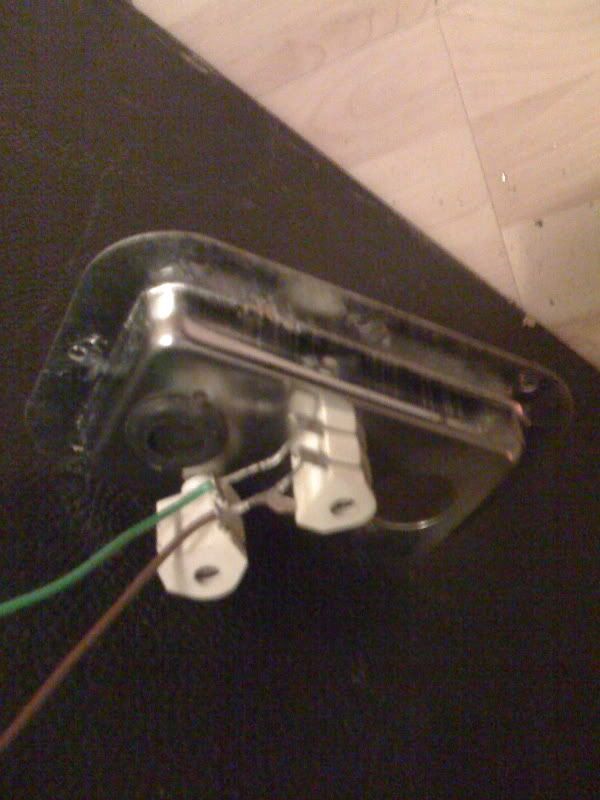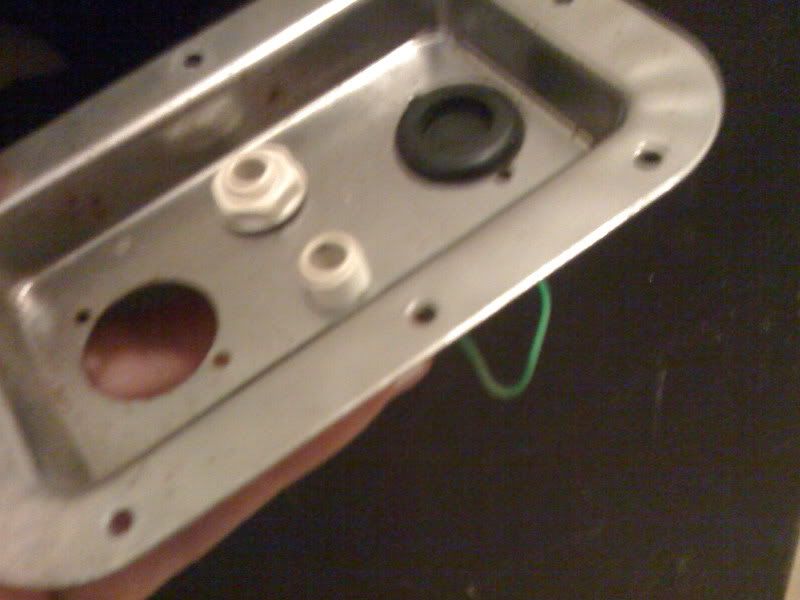They're not always made larger. Generally a 4x10" setup is the most prevalent. 15" drivers exist but they are by no means the industry standard for bass.william wrote:really, they should move MORE air, for the same reason. bass speakers generally have longer travel, and have larger cone diameters, because they have to move alot more air to project those low frequencies.Fran wrote:Whats the science on this Mike? I know amps like the Fender Bassman were initially a bass amp but used more for guitar, do bass speakers move less Air or something because of the frequency?
have you ever played with an analog synth, and noticed that whe you play the low low octaves, its like they just arent audible? I remember playing around with subbass sine waves on my microkorg, thru my infiniti bookshelf speakers (with like 6" cones), and when i wasnt hearing the tones anymore, i looked at the drivers. they were moving SO slowly! i realised then why bass drivers are made larger.
anyway, that cab looks awesome. I will be trying to get ahold of something similar for my bassless setup.
Speaker Cabinet Alterations
Moderated By: mods
- Mike
- I like EL34s
- Posts: 39170
- Joined: Thu Apr 20, 2006 8:30 am
- Location: Edinburgh, Scotland
- Contact:
Mike wrote:They're not always made larger. Generally a 4x10" setup is the most prevalent. 15" drivers exist but they are by no means the industry standard for bass.william wrote:really, they should move MORE air, for the same reason. bass speakers generally have longer travel, and have larger cone diameters, because they have to move alot more air to project those low frequencies.Fran wrote:Whats the science on this Mike? I know amps like the Fender Bassman were initially a bass amp but used more for guitar, do bass speakers move less Air or something because of the frequency?
have you ever played with an analog synth, and noticed that whe you play the low low octaves, its like they just arent audible? I remember playing around with subbass sine waves on my microkorg, thru my infiniti bookshelf speakers (with like 6" cones), and when i wasnt hearing the tones anymore, i looked at the drivers. they were moving SO slowly! i realised then why bass drivers are made larger.
anyway, that cab looks awesome. I will be trying to get ahold of something similar for my bassless setup.
i guess i was being more general in my thoughts, like including PAs and theatres and whatnot. generally speaking, the larger the cone and the longer the throw, the deeper the frequency response.
also, 4 10s is alot more cone surface than 2 12's, for instance.
i never could figure out why you never see 412 bass cabs.
they make those kicker L7 subs square so they can fit more square inches in the same workable frame, as it were. i e a 12" across square has a considerably larger surface area than a 12" diameter circle, and they take up the same space in an enclosure.
- Fran
- The Curmudgeon
- Posts: 22219
- Joined: Thu Apr 20, 2006 5:53 am
- Location: Nottingham, Englandshire.
Yeah, i read somewhere it was one or the other it was'nt my concept, i could not remember which it was.
Wiki wrote:Loudspeakers
The requirement to reproduce low frequencies at high sound pressure levels means that most loudspeakers used for bass guitar amplification are designed around large diameter, heavy-duty drivers, with 10", 12" and 15" being most common. As a rule of thumb, performers desiring a deeper bass tone (e.g., punk, metal, or hard rock bassists) prefer the larger speakers, while performers wanting a more articulate tone (e.g. jazz or fusion bassists) tend to prefer the smaller speakers with better extended mid-range response. However, a trend towards to cabinets with smaller, multiple drivers (e.g. 8 x 10) has been developing. [5]
Speaker cabinets are largely designed around a single type of driver (common examples are 1X10" ,1x12", 1x15" and 2x10" or 4x10"). Bass players sometimes stack two or more cabinets containing different-sized drivers to obtain a particular sound. Players with five- or six-string basses or those who perform in louder, heavier styles of music sometimes add a 1X18" cabinet to reproduce the lowest notes.
Bass cabinet companies make many advertising claims about their products, such as that certain speaker sizes "respond more quickly", create a "more focused sound" or "move more air." Ampeg, for example, claims that their 8x10 cabinet enclosures are capable of moving an amount of air equivalent to that of five 18" speakers, or six 15" speakers, making them much more efficient than larger speakers. Some of these advertising claims have been debated by sound engineers and audio experts.
- Fran
- The Curmudgeon
- Posts: 22219
- Joined: Thu Apr 20, 2006 5:53 am
- Location: Nottingham, Englandshire.
Okay Mike, i got a cheap multimeter. It has these settings in ohms; X1K, X100, X10. Putting the positive lead on the tip and the negative on the sleeve i am getting a 3.4 reading (thats on the X10 setting). Is this the right way of doing it? I guess if it is this makes the cab 4ohms.Mike wrote:Yeah, you could connect a speaker lead to the cab and use a multimeter set to ohms (<200 setting) to measure the resistance between the tip and the sleeve of the end of the speaker lead. Since impedance is a frequency dependant quantity and you're measuring resistance the reading will be a bit below what the cab impedance is, so for example if you read 6 ohms it's an 8 ohm cab, 12 ohms it's a 16 ohm etc.Fran wrote:Thanks guys. I found loss of mids/highs, but that suits my current situation. And yes, the Marshall does match well.
Is there an easy way of finding out the ohms rating of the cab? I suppose i need a multimeter for this? If its wired at 4ohms it does'nt match the Marshall. The Marshalls output is for between 8 - 16 ohms.
- Fran
- The Curmudgeon
- Posts: 22219
- Joined: Thu Apr 20, 2006 5:53 am
- Location: Nottingham, Englandshire.
The bitch is front loaded, there seems to be no access panel. But one of the handles is missing so i can see the back of one of the speakers quite well. Where does it tell you the impedance of a speaker or do i need to put the meter on some points?Mike wrote:Yep, absolutely. Looks like it's 4 ohms currently.
Crack that fucker open and tell me what impedances the speakers are. We'll get it wired to match the Marshall.



